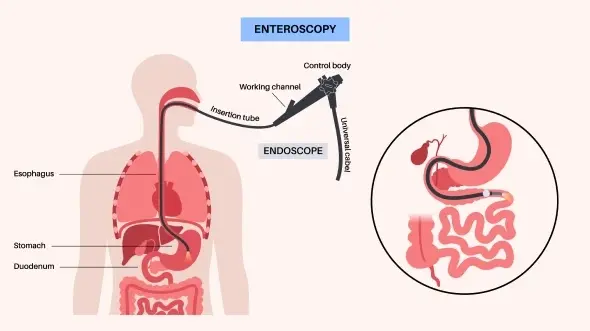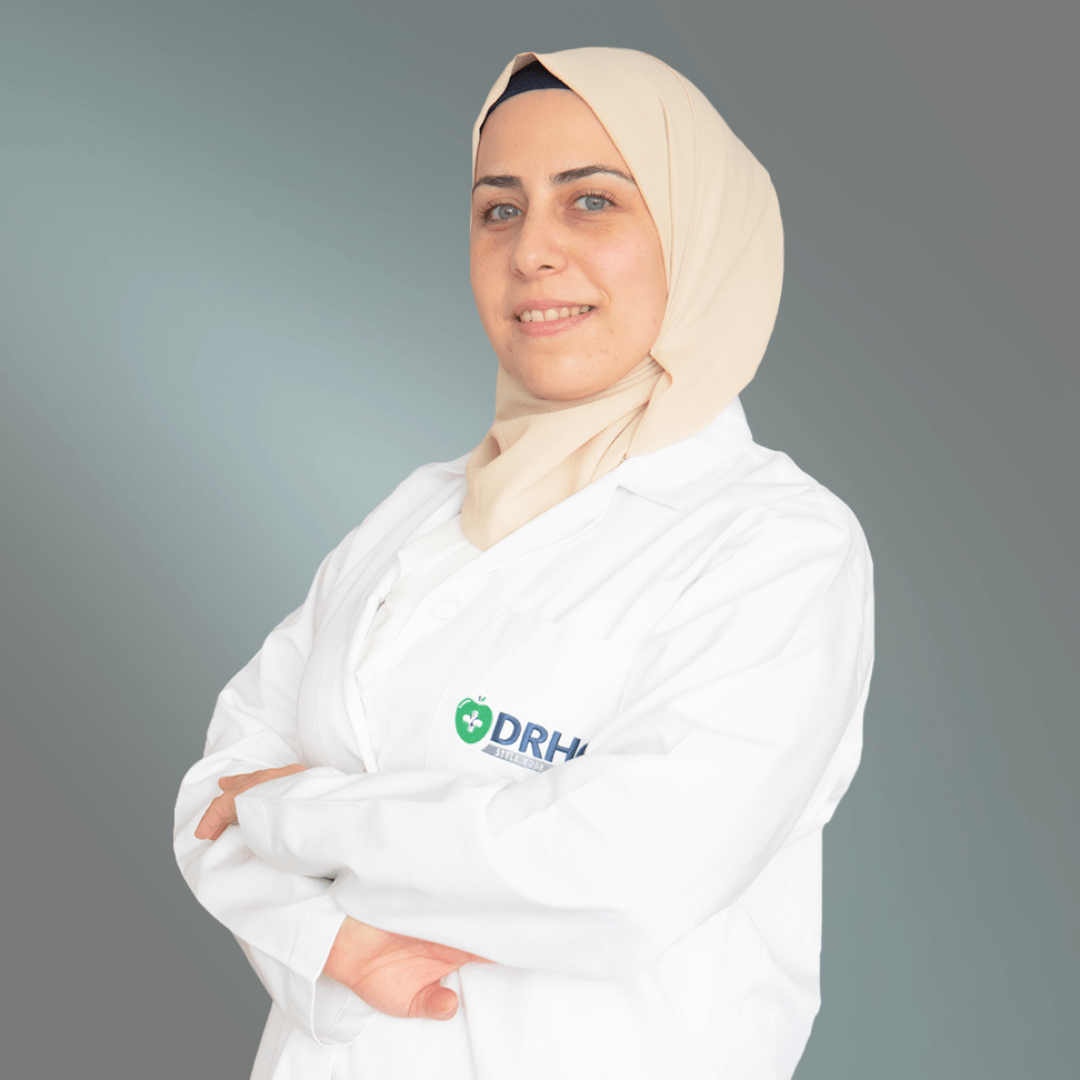Enteroscopy at DRHC Dubai Gastroenterology Clinic
What is Enteroscopy?
Enteroscopy is a specialized endoscopic procedure used to examine the small intestine, which is not easily accessible with traditional endoscopy or colonoscopy. This advanced technique is essential for diagnosing and treating conditions affecting the small intestine, such as bleeding, tumors, polyps, inflammatory diseases, and malabsorption disorders.
Types of Enteroscopy
- Push Enteroscopy: Uses a long, flexible endoscope inserted through the mouth to examine the upper part of the small intestine.
- Balloon-Assisted Enteroscopy (Single or Double Balloon): Utilizes one or two balloons to help advance the endoscope deeper into the small intestine, allowing for detailed examination and therapeutic procedures.
- Spiral Enteroscopy: Uses a rotating spiral overture to facilitate deep insertion into the small intestine.
- Capsule Endoscopy: A non-invasive method where the patient swallows a small capsule with a tiny camera that captures thousands of images as it moves through the digestive tract.
Why is Enteroscopy Performed?
Enteroscopy is recommended for various diagnostic and therapeutic purposes, including:
- Unexplained Gastrointestinal Bleeding: Identifying sources of chronic or acute bleeding in the small intestine that may not be detected by other imaging methods.
- Inflammatory Bowel Disease (IBD): Evaluating Crohn’s disease and other inflammatory conditions affecting the small bowel.
- Small Bowel Tumors and Polyps: Detecting abnormal growths, tumors, or polyps in the small intestine for early diagnosis and treatment.
- Celiac Disease and Malabsorption Disorders: Assessing the extent of damage to the intestinal lining due to autoimmune conditions.
- Obstructions and Strictures: Identifying and managing blockages or narrowing of the small intestine that can cause digestive issues.
- Therapeutic Interventions: Performing biopsies, removing polyps, dilating strictures, cauterizing bleeding vessels, or placing stents when necessary.
How is Enterscopy Performed?
Enteroscopy is performed under sedation or general anesthesia to ensure patient comfort. The technique used depends on the location and type of condition being investigated:
- Upper Enteroscopy (Push or Balloon-Assisted): The endoscope is inserted through the mouth and advanced into the small intestine to evaluate upper gastrointestinal issues.
- Lower Enteroscopy: In cases where the lower small intestine needs to be examined, the endoscope is inserted through the rectum.
- Capsule Endoscopy: The patient swallows a small capsule containing a tiny camera that transmits images wirelessly as it moves through the digestive system.
- Therapeutic Enteroscopy: Involves additional tools, such as forceps, biopsy needles, or cauterization devices, to treat identified conditions.
Benefits of Enteroscopy
- Minimally Invasive: Provides a non-surgical approach to diagnosing and treating small intestine conditions.
- High Accuracy: Offers superior imaging and real-time visualization of the intestinal walls.
- Therapeutic Capabilities: Allows direct intervention for issues such as polyps, bleeding, or strictures.
- Early Detection of Diseases: Helps in identifying small bowel conditions before they become severe.
- Faster Recovery: As a minimally invasive procedure, enteroscopy has shorter recovery times compared to surgical alternatives.
Risks and Complications
Enteroscopy is generally safe, but some potential risks include:
- Mild sore throat, nausea, or bloating after the procedure
- Bleeding (rare, mostly after biopsy or polyp removal)
- Perforation (extremely rare but may require medical intervention)
- Pancreatitis (very rare, more common with balloon-assisted enteroscopy)
- Temporary discomfort due to air inflation used during the procedure
How to Prepare for an Enteroscopy
- Fasting: Patients should avoid food and drinks for at least 6-8 hours before the procedure.
- Medication Adjustments: Blood thinners and certain other medications may need to be stopped temporarily under medical guidance.
- Bowel Preparation: Laxatives or bowel cleansing solutions may be required, depending on the type of enteroscopy.
- Post-Procedure Care: Patients should arrange for someone to drive them home as sedation may cause drowsiness.
Why Choose DRHC Dubai for Enteroscopy?
At DRHC Dubai, we provide cutting-edge enteroscopy services performed by experienced gastroenterologists using the latest technology. Our advanced endoscopic equipment ensures accurate diagnosis and effective treatment in a patient-centered environment. We prioritize safety, precision, and comfort to deliver world-class medical care.
.png?width=281&height=59&name=bookanappointment%20(1).png)
Dubai Gastroenterology Clinic—Dr. Rami Hamed Center now provides the leading gastroenterologist in Dubai for Gastric balloons, Colonoscopies, Colon Cancer Screening, and more. DRHC offers highly qualified liver specialist doctors in Dubai. Call +97142798200 to Book your Appointment Today at DRHC Dubai.




.png?width=281&height=59&name=bookanappointment%20(1).png)




